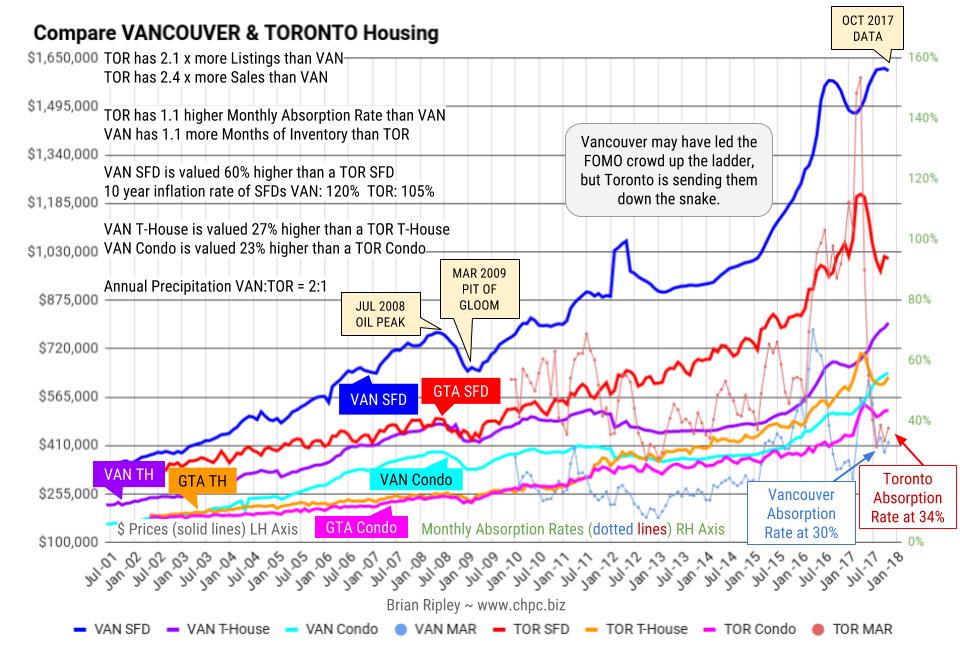
In March 2017 the Monthly Absorption Rate based on total inventory and total residential sales hit 154% in Toronto vs Vancouver at 47%. Vancouver may have led the FOMO crowd up the ladder, but Toronto is sending them down the snake.
|
|
This chart shows the relative values of STRATA units as a percentage of average single family dwellings in the 3 hot markets of Vancouver, Calgary and Toronto.
Calgarians are willing to trade 1 house for only 1.3 townhouses. Torontonians will settle for 1.6 townhouses and Vancouverites demand 2.
If the numbers don’t make sense you can always rent. When MOI is low & MAR is high, developers and vendors have the edge.















